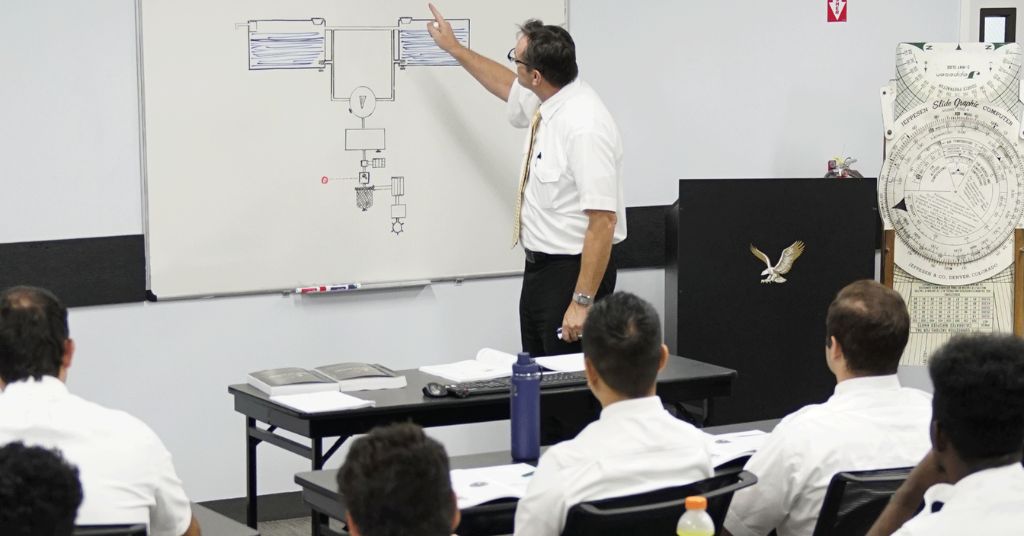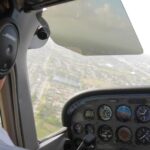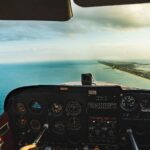Quite a few of you have had the unique and challenging experience of assisting a child in choosing a college. Maybe you flipped a coin for children two and three, but picking a college for that first was quite a daunting task.
As it was a brand new experience, it was hard to figure out where to start. With so many facets and steps, such a life-changing decision can not be overlooked. What questions should you ask? Who knows? So, to do your due diligence, you go and visit a college or two to get answers. What is the campus like educationally? (Your child wants to know what the campus is like socially.) Is it a safe area? What about the classes? Is my child going to be just one in a sea of students or will they get personal attention? Will I, the parent, know what their grades are and how they are progressing? And of course, what is the tuition and when and how do I pay? How often will they visit home? How will they do their laundry? I’m actually getting tired just thinking about this again, but I think you all get the picture.
Now, let’s think about something else significantly less stressful: buying a car. What are the questions involved in that decision? How much? How do I pay? When can I drive home? Gas mileage, features, warranty, etc.
Quite a different list from one to the other, and I’ll bet that most of us have purchased far more cars than we have sent kids to school; in fact, some of us out there have not yet sent that first child to school, so maybe we cannot relate to all of the challenges that go into the process.
So, is shopping for flight training more like picking a college or buying a car?
Here’s the thing about flight training: it is teaching you to fly, or refreshing your ability to fly, an airplane. It is an education that allows you to take a few thousand pounds of metal, upholstery, and electronics, defy gravity into an area populated by other such Da Vinci-esque engineering marvels and return you to the ground in one reusable piece. There are many factors to consider when choosing the best flight school for you.
Initial Impression
First impressions, while considered mostly knee-jerk and primal, are often actually important in any decision-making process.
How comfortable would you feel in a doctor’s office that is dirty and discombobulated, and then you are greeted by a receptionist that is rude and disheveled, only to be seen by a doctor with horrible body odor, dirt under his fingernails, and a wrinkled t-shirt? Probably not very. So when you walk into a flight school for your first visit, what is it like?
What are their airplanes like? Is your initial impression like the dirty and questionable doctor’s office, or is it more like your current doctor’s office? Looks, appearance, and your gut feelings may not directly reflect on their ability to teach, but if they can’t do things as simple as work a vacuum, empty a garbage can, iron a shirt, or put on a smile and greet you, they might not be able to do more difficult tasks… like teaching you to fly.
Organization of Education and Curriculum
There’s an old saying that if you don’t have a plan for where you are going, any path will get you there. What is this flight school’s plan to get you done? What is the time frame? When should you expect to be done? Although flight training is not about getting a minimum number of hours, my aviation mentor always used to say that there is a big difference between having 40 hours of flight time, and 40 hours of flight education. There should be an expectation of when this journey is supposed to conclude. You need a road map, you need a plan, you need a curriculum. You should have an idea of what that is. Otherwise, there is another version of the opening saying that if you don’t have a plan for where you are going, you will probably end up somewhere else.
Relevant Training
A curriculum and plan are important, but it needs to be flexible. It needs to be tailored to you. Unless you are in a classroom setting with multiple students where the pace is set, an option at some schools, the education you are receiving should be based on your strengths and weaknesses. If you are an avid sailor, navigation might be a shorter lesson for you; you might not need a three-hour lesson on compass use and weather. Your training needs to focus on you, the student, and not on a piece of paper with boxes to check that do not take your knowledge into account.
Progress and Milestones
Some of the early explorers set off to find something that they were not sure actually existed. I’m sure that made for a stressful journey, not knowing how long it would take you to get somewhere, and how much food and supplies to bring. Thankfully, in aviation training, we know the goal. Now while flight training is not an exact science and is based on many variables, there are certain achievement goals throughout the program that will be prior to moving on to the next step. A flight school should be able to tell you how you are doing along the way.
Financial Commitment
Just like college, there is tuition that is associated with flight training. And just like college, that tuition varies greatly from school to school. An online college is going to be priced very differently than a private university. Why? Because the private university is charging you for professors, teaching assistants, deans, dorms, meal plans, insurance, books, etc., and the online college is not. It is a different kind of education, and you cannot compare the two. To evaluate the cost of your schooling, you need to know what is included in the price.
So often, we make shopping for flight training more like shopping for a car. “What’s your hourly rate?” “What kind of planes?” “Can I get this in leather?” A 2015 Honda Civic from Illinois is not very different from a 2015 Honda Civic from Kentucky. We know what we’re paying for – it is a 2015 Honda Civic. So at that point, price and maybe convenience acquisition is the only factor. That is not the case with flight training. We may be looking at a Honda Civic, an Aston Martin Vulcan, a Lincoln MKX, and a Harley Davidson Road King; one is a compact, one a coupe, one’s an SUV and one’s a motorcycle. Costs are going to be significantly different! All flight training programs are not created equal; some have very different goals and purposes. Which one has the features you want?
If while touring your daughter’s future college campus, you watch three people get mugged and hear about their gang violence problem on the news, you’re not going to get much further than one day’s worth of consideration. Money doesn’t matter. But if everything else is exactly what we want, the financial commitment of this education has a different value. Flight training is the same.
Aviation is fun, and flight training is enjoyable. But to get to the fun and enjoyment, when looking for an organization to assist us in furthering our aviation education, we need to find out a lot more than just “how much” and “how long.” We need to treat this like we are picking a college. We need to know how this individual or this school is going to assist us, personally, in reaching our aviation goals. We need to visit, we need to trust our feelings, we need to ask lots of questions, and we have to do our due diligence. Shopping for flight training is a serious matter and an involved process and we need to take the time to listen to what schools and instructors have to say. After all, they might have been doing this for a while and may have some good points you will need to consider. Once you find the school that fits you and your needs, then the cost should come into play, but not necessarily before. Shopping around and hearing what the school offers is the only way we will find out if they truly are the school that will help us do what we want to do, safely, efficiently, and effectively.










